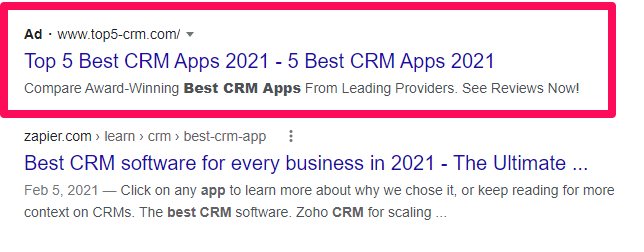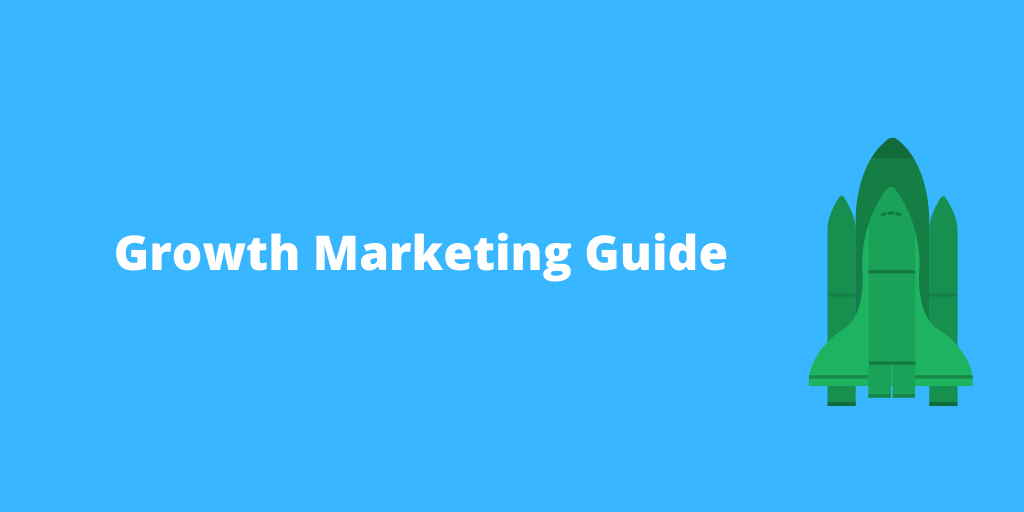With Google making thousands of changes to its algorithm each recent year, proper SEO campaign management has become of paramount importance.
Every site owner trying to commence SEO efforts dreams of ranking high on SERPs. But planning a well designed SEO campaign is no easy feat.
Well, no worries. We are here to tell you all you need to commence a successful SEO campaign for your company and achieve the high levels of organic search traffic you want.
The Difference Between Paid Traffic And Organic Search Traffic
Organic search traffic refers to the visitors that arrive on your website by clicking on links on SERPs. The higher your site ranks on SERPs, the more organic search traffic you are going to get. This is because most users do not make it past the first page of SERPs.
Site owners try to influence the ranking of their websites by search engine optimization. There are multiple ranking factors that they need to keep in mind when optimizing the web pages, which are parts of an SEO campaign. A positive work culture that encourages collaboration and innovation can significantly contribute to the effectiveness of an SEO campaign.
By contrast, paid traffic comes from users clicking on a link on an advertisement and hence visiting your website. Your company has paid for these advertisements. The most common type of gaining paid traffic is pay per click (PPC) advertising on Google Adwords. Nowadays hiring independent PPC consultants is a very popular option for many B2B, SaaS, Startup and Technology business leaders who are looking for digital marketing services.

This refers to the advertisements you see on SERPs with a small “Ad” written. The businesses shown have paid for this PPC advertising and hence received the spot at the top.
However, traffic acquired through PPC advertising does not help search engine optimization (SEO), as announced by Google itself. This means that the website might not necessarily rank at the top of SERPs if the business did not pay for PPC.
What PPC does help with, though, is being accessible to a broader audience.
What Makes SEO Campaign Management Important?
SEO campaign management is crucial because it involves tracking the performance of your website and content regularly and taking active measures to improve your site’s ranking on SERPs. This means you would also have to run digital marketing campaigns and observe results. Enhance your SEO campaign management by incorporating eye-catching visuals created effortlessly with a reliable poster maker online effortlessly in just a few clicks.
All these ensure that you have an active role in your business’s digital marketing implementation strategy and can take any required corrective action before it is too late. An SEO campaign requires setting an SEO strategy, which requires planning. It is difficult to track and measure success when you don’t have any plan.
However, planning an SEO strategy is not very simple. Having a team of expert marketers can help you here, but we are laying out an easy-to-follow process to plan and manage an SEO campaign. Read on to find out what steps you need to take to start ranking high on SERPs!
A Step by Step Process
Here is a summary of the whole procedure. Read on to learn details about each step.
Without further ado, let’s dive in!
1. Set Goals for Your SEO Strategy
This is true for any marketing strategy you want to implement and is very important when it comes to digital marketing. If you don’t set specific, measurable, and realistic goals, you will have difficulty defining how much progress you have made towards your SEO strategy being successful.
Setting goals helps translate the abstract goals you have in your mind into specific, tangible goals that can be achieved.
Of course, the main objective of investing efforts into search engine optimization is to achieve higher rankings on search engine results pages (SERPs). But there are so many smaller components of achieving this goal. Just writing down “appearing on the first page of SERPs” isn’t going to cut it.
You can think in terms of organic search traffic, bounce rates, etc. But we encourage you to think a bit deeper when setting your goals for your company’s digital marketing strategy.
First, think about whom you have in mind when thinking of marketing campaigns. Who is included in your target group? Develop a buyer persona or a customer profile. You can think in terms of demographic variables such as age, gender, ethnicity, household income, and more.
If your business is such that location plays a huge role in your making a sale, you can also use geographical segmentation.
You can also think in terms of psychographic segmentation if you want to group your customers by their personal interests or values.
You can also employ behavioral segmentation if you want to categorize your audience in terms of behavioral patterns such as product knowledge, frequency of purchase, awareness about your brand, and more.
Next, you can think about what you want to achieve by getting your target group on your website. Here, think in terms of measurable metrics, such as sales. Be as concrete as possible.
If you are having trouble coming up with a good measurable metric, it may mean that you are not clear about what you want to achieve with your SEO efforts. If you aren’t sure about this, you may never be satisfied or happy with the outcomes of your digital marketing assistance, no matter how many or which marketers you employ.
Finally, think about how you want to achieve the goals you have decided upon. You have to create a realistic plan about how to go about it.
2. Perform Keyword Research
Good keyword research is the kickoff for every SEO campaign. You can create a list of relevant keywords, automate the process and save time with a tool like Google Trends API, as well as API monitoring to ensure its correct functionality.
Sure, it is easy to brainstorm keywords you want your website to rank for, but picking the right keywords is crucial. Not only do your keywords need to be relevant to your industry but they also need to be able to help you achieve the goals you set in the first step. Conducting effective keyword research can also enhance your visibility in various regions. It's worth exploring the option of hiring internationally to bring a country-specific SEO expert onto your team.
You can use Google Keyword Planner to help with this. It is a free tool that derives data from Google. There are other options as well, such as the Keyword Bin, Ahrefs, or KWFinder.
Narrow down your list to 10 or so keywords that you want your website to rank for. Pay more attention to the ones with less competition and high search volume when choosing among keywords.
And when you are at it, don’t forget long-tail keywords. Long-tail keywords are longer keywords (typically over 3 words in length) that have comparatively low search volume and competition.
If long-tail keywords have low search volume, why are we even looking at them?
It is because long-tail keywords have higher conversion rates. This type of keyword helps significantly increase organic search traffic to your website.
Even though the search volume for individual long-tail keywords is low, they make up a major portion of searches when grouped. Thus, long-tail keywords are crucial if you want a consistent increase in your organic search traffic.
In general, when searching for keywords, keeping the user intent in mind can greatly help.
For example, is your audience looking to learn more about a subject? Are they looking for guides and definition articles? Such searches often begin with the words and phrases like “what” and “how-to.”
Lastly, there are some users who have collected some information and want to take some action with it. This action may include making a purchase or asking for more details. Such users may be low in number but are likely to be easier to convert into a sale since they are already interested in your product or service.
3. Conduct Audits
Now it is time to audit your current digital marketing campaigns comprehensively. Find out what you need to do to achieve your SEO goals.
You should ensure that the technical parts of your site’s SEO are okay. How long does it usually take for web pages to load? How is the user experience in terms of website navigation and structure? Observe these.
Also, getting your site crawled can help you identify technical issues that can adversely impact crawling by search engine bots.
4. Focus on Impeccable Content Creation
Quality content is the key to higher organic search traffic.
There has recently been an increase in blogs, infographics, and other types of content, and for a good reason. If your content creation revolves around your customers’ needs and pain points, it can help you establish yourself as a reliable source of knowledge. Your audience is more likely to trust your advice and products if they have derived value from the quality content on your website’s blog section.
However, you have to keep your focus on excellent content creation, be it social media content or blog pieces. Quality content should be what you are looking to produce, not tens and hundreds of subpar blog pieces.
Optimizing your content is important but be careful about keyword stuffing. That is, don’t include the keywords you are trying to rank for in every possible nook and cranny. If it does not read well to you, the chances are that it won’t be a seamless read for your audience, either.
So, make sure to sprinkle your keywords but such that they fit in comfortably with the context. You should also include backlinks to other pages on your website wherever they are relevant. For example, if you have an article listing the 10 best link building services, you should probably include a backlink to another article on your site that explains what backlinks are.
You should also add media such as illustrations, flowcharts, or videos to make your content look more pleasing to the eye.
Research your competitors and observe what kind of content they produce. See which of their content performs the best and take inspiration from that.
You can also search for SEO campaign templates to help you decide what kind of content you should produce.
Content creation is such an important part of a digital marketing strategy that you might want a specialist to handle it. For assistance with coming up with high-quality content briefs, you can seek Content Guppy’s services.
5. Optimize Content
You have produced great content. What now?
Now is the time for optimizing your content. Things like URL, meta tag, meta description, title tag, internal links, etc., matter a lot for search engine optimization. These may seem like petty details but can actually influence where your site ranks on SERPs.
When it comes to URLs, you want them to be concise but also contain keywords. For example, here is the URL for the page describing how Content Guppy’s SEO content services work.

The URL contains the primary keywords and is short at the same time.
You might think this is a trivial factor, but URLs that contain keywords have 45% higher click-through rates than do URLs without keywords,
Moreover, try to put your keyword at the beginning of your title tag. This is because search engines like Google put more emphasis on terms that show up earlier on your meta tag.
Also, try to include your keyword within the first 150 words of your content for the same reason. Including keywords early on signals to search engines like Google that the word is important.
When it comes to backlinks, know that both types of inbound links- those from other, newer pages on your site to your content and those from external websites- can help improve your page authority. Thus, more inbound backlinks are preferable when they are from quality websites.
Lastly, try to include synonyms in your content, that can be done by either searching synonyms on online dictionaries or taking help from a rephrase online – a tool that not only replaces words with their most relevant synonyms but also improves overall sentence structure while retaining the original meaning.
6. Build Quality Backlinks
We will begin by addressing a question many may have.
What Are Backlinks?
Backlinks, also known as “inbound links,” are simply links from one website to another. They are kind of votes of confidence for a website. Backlinks signal to search engines that people are vouching for your content. If you have a lot of backlinks from authoritative sites, they can help improve your site’s position on SERPs. Backlinks are no doubt one of the most important ranking factors for any website.
So, Link Building Is..
Link building refers to the process of obtaining backlinks from other websites to your own. It is an incredibly important part of Google’s algorithm.
Link building involves a lot of networking with similar sites that cater to your niche. Be realistic in thinking about which sites may be interested to link back to you.
There are many ways to engage in link building. You can reach out to site owners and influencers, write guest posts for other sites, and build up email lists.
However, not every inbound link is good. You need to remove toxic links from shady websites before there are enough of them to drag your website down.
7. Track Your Progress
Now that you are done with all these, you must be at the finishing line, right?
Not quite. SEO is an ongoing effort. So, monitoring your progress is very important.
Are you getting as much organic search traffic as you aimed to? Is your audience appreciating your content creation? Is the number of inbound links you are getting good?
Tracking your progress helps you see how close to your goal you are. It can also help you pinpoint bottlenecks and take corrective action for any issues.
To present your progress, you can make the presentation from scratch, or leverage an SEO Report presentation template, which will allow you to save time when creating the presentation.
Conclusion
Now you know all the steps involved in good SEO campaign management and the ranking factors you need to pay attention to. Sure, you can definitely try assembling an in-house team for your company’s SEO campaign management.
But with the numerous components of SEO and Google’s ever-changing algorithm, you may get better results by hiring a team of experts like Content Guppy. It will help you attract a convertible audience, produce quality content, scale your business, and achieve your goals.
From setting up SEO strategy to quality content creation to optimizing web pages- Content Guppy’s team of dedicated professionals will be there to help you every step of the way.
And the best part is that you can even schedule a free demo before making any financial commitment. Talk about a win-win!
Without further ado, get in touch with Content Guppy to schedule your free demo today!




About The Author: Greg Digneo
I love helping people with their marketing. So I created this site to give you tools and information to help you grow your blog, build your audience, and get more sales.
More posts by Greg Digneo